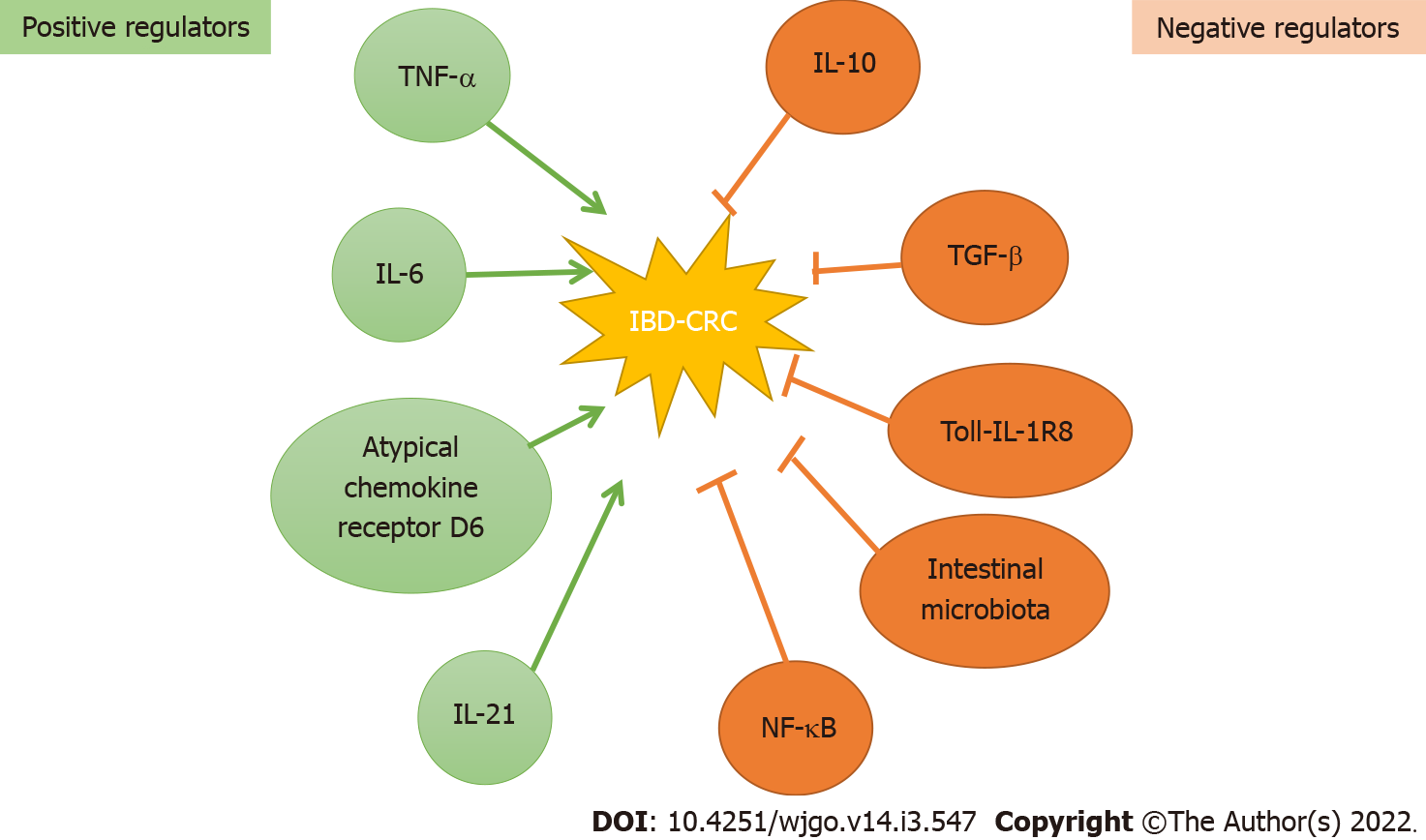Copyright
©The Author(s) 2022.
World J Gastrointest Oncol. Mar 15, 2022; 14(3): 547-567
Published online Mar 15, 2022. doi: 10.4251/wjgo.v14.i3.547
Published online Mar 15, 2022. doi: 10.4251/wjgo.v14.i3.547
Figure 2 Molecular regulators of development of inflammatory bowel disease-related colorectal cancer.
Over the years numerous biological molecules and pathways have been identified that positively or negatively regulate the development of inflammatory bowel disease-related colorectal cancer. Microbial dysbiosis in conjunction with cytokines [tumor necrosis factor-α, interleukin (IL)-6 and IL-21] and chemokines (atypical chemokine receptor D6) drive intestinal immune response, in turn leading to chronic inflammation, tissue injury, dysplasia and cancer. The negative regulators including cytokines IL-10 and transforming growth factor-β, nuclear factor-κappa beta, Toll-like receptors, along with healthy gut microbiota prevent gut inflammation-mediated tissue injury and promote healing of damaged tissue. NF-κβ: Nuclear factor-κappa beta; TNF-α: Tumor necrosis factor-α; TGF-β: Transforming growth factor β; IL: Interleukin; CRC: Colorectal cancer; IBD: Inflammatory bowel disease.
- Citation: Majumder S, Shivaji UN, Kasturi R, Sigamani A, Ghosh S, Iacucci M. Inflammatory bowel disease-related colorectal cancer: Past, present and future perspectives. World J Gastrointest Oncol 2022; 14(3): 547-567
- URL: https://www.wjgnet.com/1948-5204/full/v14/i3/547.htm
- DOI: https://dx.doi.org/10.4251/wjgo.v14.i3.547









